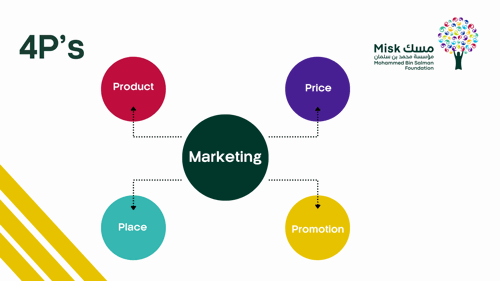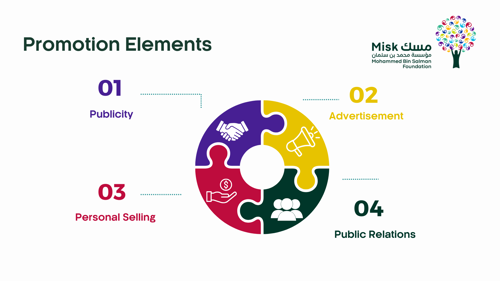
In the world of business and startups, marketing is considered one of the most effective tools that contribute to the success and distinction of these ventures. Marketing goes beyond promotion and sales; it forms the backbone that propels commercial success and plays a crucial role in shaping public perception, executing plans, and implementing strategies.This article delves into the definition and importance of marketing, the distinctions among marketing, promotion, and sales, and shedding light on its impact on both businesses and governments, exploring profound differences in concepts and definitions related to marketing.
What is marketing?
Marketing is defined as a set of processes or activities that aim to discover customer desires, develop products or services that satisfy those desires, and generate profit for the organization within an appropriate time frame. While marketing is often referred to as the art of selling, it is a broad process that includes sales as a part of it.
Marketing involves discovering customer desires, and some experts suggest that marketing is about predicting customer desires. Although both concepts are not contradictory, the former focuses on understanding current customer needs—what they want, the problems they face, and how to create a product to solve these issues. The latter involves anticipating these needs and problems for years, innovating solutions. Henry Ford, the founder of Ford Motor Company, emphasized that merely listening to and fulfilling customer desires is not sufficient. If asked, customers might have requested faster horses. Hence, if companies had just fulfilled what customers ask for, there would have been no cars or trains.
Promotion is the final step in the marketing process. After a company listens to customers, identifies their needs, or understands the challenges they face, manufactures a product or service that addresses those issues, prices it appropriately, and makes it accessible to people, the last step to come is promotion. This involves conveying your message to the target audience, either through personal interaction, advertisements, or publicity.
Definitions of marketing elements:

Just as marketing is divided into elements (product, price, distribution, promotion), promotion is subdivided into elements (publicity, advertising, personal selling, public relations).
Definition of promotion elements:

After the promotion process, the customer journey typically concludes with the completion of the sales process, which is defined as any exchange that takes place between the seller and the buyer, where the seller provides a product or a service for a monetary value
However, the sales process doesn't stop with the exchange; it extends beyond to achieve customer retention, satisfaction, and verification that the product has met their expectations. This post-sale phase is the most crucial. Because convincing people to make a purchase might be easy, but customer retention is the real challenge.
Now, the significant question arises: How does marketing serve governments and non-profit organizations?
Marketing is not limited to for-profit entities; even governments can market themselves to attract tourists or investors to the region. For example, the recent campaign by the Ministry of Tourism in the Kingdom of Saudi Arabia invited influencers from various fields, such as football and art of all its kinds, as well as social media influencers, to visit the KSA and experience living around its unique landforms and in its captivating atmosphere. This initiative aims to increase tourism in the region, demonstrating how governments can utilize marketing for diverse purposes based on their needs and orientations.

The renowned football player Lionel Messi, appointed as the tourism ambassador for the KSA, serves as an example of how fame extends beyond sports. Messi is not only one of the greatest football players in history but also holds significant influence globally in both sports and culture. With a massive fan base across various social media channels totaling over half a billion followers regardless of their interest in sports, Messi's fame can play a pivotal role in promoting tourist destinations in the KSA, raising awareness about the region's culture, landmarks, and attracting individuals interested in exploring the country's heritage and key tourist attractions.
Marketing can assist governments in several ways, where it can play an effective role in achieving goals set by the government and enhancing communication with communities.
Here are Four points that illustrate how marketing can help governments:
In conclusion, marketing can be an effective strategic partner for governments, non-profit organizations, and companies alike, assisting in achieving economic and social goals, and in building relationships with current and potential customers.